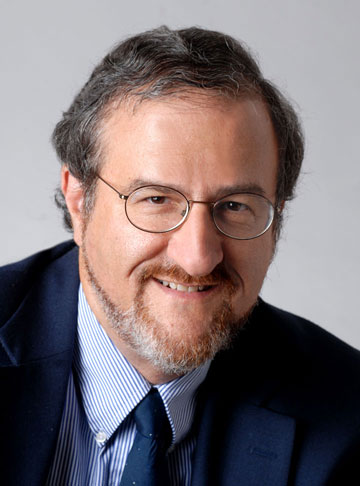Amid Sex Scandals and Regent Woes, U-M President Announces He’ll Step Down Before His Contract Ends
By Ron French, Bridge Michigan
University of Michigan President Mark Schlissel will be leaving his position in 2023, a year before his contract ends, amid a swirling sex scandal involving a long-time doctor in the athletic department and reportedly turbulent relations with some members of the U-M Board of Regents.
Schlissel made the announcement Tuesday in a letter to students, staff and faculty, saying it was “an important time to strategically consider the future of our university.”
He will leave at the end of June 2023, the end of the university’s fiscal year.
According to reports from the Detroit Free Press, relations between Schlissel and the school’s statewide-elected Board of Regents have deteriorated, with some members unhappy with the president’s opaque communication.
The early departure was negotiated between Schlissel and board members who continue to support him, and those who have lost confidence in his leadership, according to the Free Press.
The board will begin a national search for the university’s 15th president.
“I appreciate the leadership of President Schlissel throughout his term and know that he is going to continue to work hard to advance our great institution,” Regent Jordan Acker, chair of the Board of Regents, said in a university-released statement. “In due course the board will come together to discuss how we will consult our community, think about the future and thoroughly plan a search for the next leader of the university.”
Schlissel came to U-M in 2014 from Brown University, where he’d served as provost. During his tenure in Ann Arbor, he helped steer a successful program to increase the percentage of low- and moderate-income students who attend the highly-selective university. While at Brown, Schlissel faced backlash from his handling of sex scandals and alleged “rape culture.”
That program, called Go Blue Guarantee, offers free undergraduate tuition to in-state students from families with household incomes of $65,000 or less. The school is typically ranked as one of the top public universities in the nation, and one of the top research universities in the world.
But Schlissel also has dealt with his share of controversies.
In 2020, then-Provost Martin Philbert was accused of decades of sexual misconduct in a university investigation. Schlissel had promoted Philbert to the position of provost, the school’s highest-ranking academic officer, in 2017. The investigation found no evidence that information about Philbert’s alleged misconduct was learned by Schlissel in advance of Philbert’s selection as provost in 2017.
That same year, allegations emerged of an even larger scandal involving a long-time U-M doctor. A report commissioned by the university alleged that Robert Anderson, now dead, molested hundreds of patients, including many former athletes, and that top university officials failed to act on warning signs and ignored complaints dating to the 1970s.
That scandal far predates Schlissel’s arrival in Ann Arbor, but some of the victims have complained about the university’s lack of transparency in the investigation, and what they view as the school’s slow-walk of negotiations over a legal settlement with survivors of his reported abuse, which could run in the hundreds of millions of dollars.
In his letter announcing his impending departure, Schlissel said he was “very proud of all the university has accomplished thus far during my term as president and remain excited about what we are currently planning for the years ahead.”
Regent Mark Bernstein said in a university-released statement that U-M “has never been stronger and that is a result of President Schlissel’s strong, steady leadership during extraordinarily challenging times. He championed the Go Blue Guarantee … and his commitment to carbon neutrality makes our university a leader in combating climate change. Just one of these successes would justify recognition as one of the most successful presidents in our history.”
In the same statement, Regent Ron Weiser said that while “we have had some differences of opinion, he has done an extraordinary job of leading our institution during a difficult time.”


Comments are closed, but trackbacks and pingbacks are open.